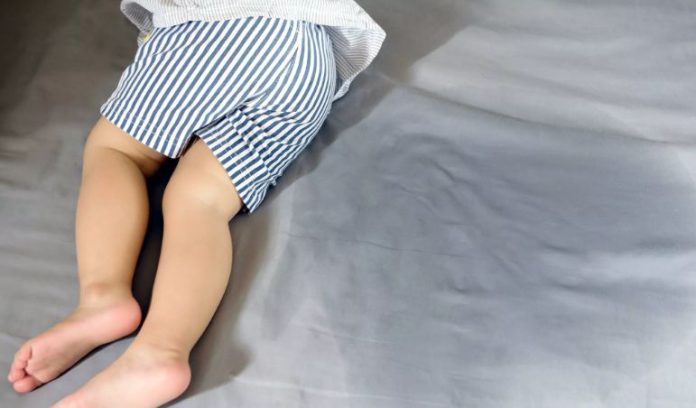Bed-wetting is a common ordeal faced by parents. Parents often feel angry and frustrated about their child’s bed-wetting condition.
But remember, children do not wet the bed on purpose, so it is important to support your child and maintain a positive attitude.
Bed-wetting can be broken into two types.
-Primary nocturnal incontinence is when a child has not been fully toilet trained.
-Secondary nocturnal incontinence is when a child has achieved full bladder control, and then, begins wetting the bed.
Most children who wet the bed have at least one parent that had the same problem. Letting your child know this can help relieve some of the stress that the child may be feeling.
If both parents wet the bed as children, three out of four of their children will wet the bed. About 20% of children still wet the bed at age 5. By the age of 10, this drops down to about 5%.
About 1% of childhood bed-wetters continue to have the problem as an adult.
Generally, do not worry too much about a child that is under the age of 6 and wets the bed. This may just reflect a delay in the maturity of the central nervous system.
Do not punish or scold a child who wets the bed. This is not a problem caused by laziness or rebellion.
To shame a child for wetting the bed can lead to feelings of low self-worth and poor self-esteem.
Always encourage and reassure your child. Do not allow family members to tease or embarrass a bed-wetting sibling.
Bed-wetting that begins after a child has been dry for a period of time may be caused by a medical condition.
It is advised that you call your doctor if there are repeated episodes of bed wetting after the age of 6.
It will be helpful to your doctor if you have documented a history of the problem. Things your doctor may ask for is a time pattern for the problem.
When did the bed-wetting begin, how often does it occur and if there have been any dry periods?
Other items to note for your doctor are if there are any problems with daytime urination. Does the bed-wetting cause awakening? What seems to help the problem and what makes it worse?
Bed-wetting will decrease as a child’s body matures. Until that happens there are a few steps you can take to help alleviate the problem.
Have your child avoid drinking large amounts of liquid and have them use the toilet right before bedtime.
Until your child can stay dry during the night, use a rubber or plastic mattress cover. This protects the mattress from getting wet and smelling like urine.
There are bed-wetting alarms available. When the device senses urine, it sets off an alarm so that the child will wake up to use the toilet.
Although they provide a 60 to 90 percent cure rate, children often relapse once they stop using them.
The alarms tend to be most helpful when children are starting to have some dry nights and already have some bladder control on their own.
Bed-wetting is a problem that usually gets better with time. If the parents stay calm and supportive, it is a problem that takes care of itself as the child’s body matures.

